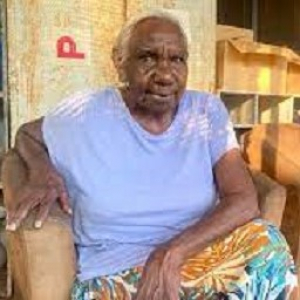Peter MALONE
Damascus Cover
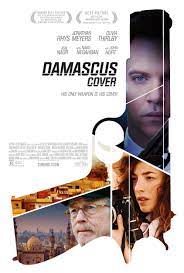
DAMASCUS COVER
UK, 2017, 93 minutes, Colour.
Jonathan Rhys Meyers, Olivia Thirlby, Jurgen Prochnow, John Hurt, Igal Naor, Navid Negahban.
Directed by Daniel Zelik Berk.
Damascus Cover is set in 1989. The film opens in Berlin in the coming down of the wall and the consequent joy. However, the central character is an Israeli agent, played very seriously by Jonathan Rhys Meyers, cold, bewildered by emotions. He fails in his attempt to extricate a double agent and returns to Israel.
His control is played by John Hurt in his final film – always creating a special character, making an impression.
The agent is sent to Damascus, undercover of being a carpet buyer and seller, to make contact with the maid in the home of a form now the officer, Jurgen Prochnow. The agent has met an American journalist in Jerusalem, photographing aggressive orthodox men, comes across her in Damascus, staying at the same hotel, and they are attracted. However, audiences may be suspicious about these meetings.
The film shows the various workings of agents undercover, surveillance, chases, shootouts. And, there is a dramatic shootout at the end involving the agent and the American journalist. However, there is also some revelation that behind-the-scenes, officials from both Syria and Israel can be in unofficial contact, working together on some cases.
A brief film, interesting, a rather cold look behind the scenes.
- Middle East espionage story? Israel, Syria? Germany? Agents, double agents?
- 1989, Berlin, the wall coming down? Syria, the Assad regime? Israel, conflict with Syria? Mossad? Agents?
- The Berlin setting is, Tel Aviv, Damascus (and Morocco standing in for Syria)? The musical score?
- Hans Hoffman’s story, his Israeli background, agent, controlled by Miki, his fellow agents in Germany, the double agent, attempt to extricate him, his death? The return to Israel, the discussions with Miki? The role of his partner? Seeing the psychiatrists, his telling them what they need to do here? His return to Damascus? His cover as selling and buying carpets?
- His mission in Damascus, to extricate the nuclear scientist and his family? At the Sheraton hotel, the scenes of selling carpets, the gift of the woven could and his wearing it? The older Germans, making contact, stealing the wallet, returning it, at the meal, the discussions with the Syrians, the presence of the intelligence chief, checking on Hans? His contact with the maid, the her suspicions, his pretending to kiss her, ousted? His later return and the attempted apology?
- The encounter with Kim in Jerusalem, her photographing the orthodox aggressive men? Hans saving her? Phone number? The later encounter in Damascus? Her work as a journalist? The attraction between the two, meetings, discussions, her attempt to photograph him and his hitting the camera, the sexual encounter and the consequences, his following her, her being picked up, the interview with the security chief? Her not suspecting? The broken watch on the gift? The return to the hotel, the room being bugged, setting up the drama to be overheard? Leaving the hotel, the attack by the men, the shootout?
- Hans, followed in the street, the bashing? His making contact with the agent, the family grouping together in the church? Coming with him, her being onside, shooting his assailant? The agent shooting him? Hans being captured?
- The background of the intelligence chief, the agent abducted, the interrogation, soft, harsh, hitting him with the phone? The contact with the general? Together with the plan and listening in on the bugged room?
- The general, Hans in his care, phoning Miki, the arrangement between the two? Hans on his release? The background of agents, double agents, counter agents, and some negotiations between the various officials from Syria and Israel?
Any Questions for Ben?
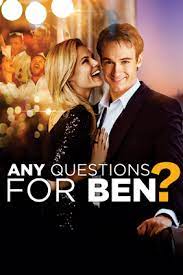
ANY QUESTIONS FOR BEN?
Australia, 2012,
Josh Lawson, Rachael Taylor, Daniel Henshall, Felicity Ward, Christian Clark.
Directed by Rob Sitch.
The title comes from a session at a school where past students come back to address present students about their life and work. Alex (a vivacious Rachael Taylor) captures their attention with her explanation of her aid work in Yemen and other countries. Ben (Josh Lawson) talks about product campaigns. The students want to ask her questions. When the headmaster (a typically enjoyable cameo from director Rob Sitch) asks ‘Any Questions for Ben’, hands go down, there is not a one.
Of course, the main concern of the title is whether Ben has any questions for himself. At the opening, he sees himself as living the good life – even the better life. He has an apartment, a solid job, a flow of girlfriends, the possibilities of being out and around socially whenever he wants. By the end of the film, especially when he botches his relationship with Alex, the questions arise, especially echoing that for Alfie back in the 1960s, ‘What’s it all about?’.
Ben is 27, turning 28. The film is geared towards that audience who, one hopes, will identify with Ben by the end. Because it has been written by the team who brought us The Castle, The Dish and many entertaining television programs, it is a perspective of 40 somethings who have been through all
of this. Which makes it that bit more interesting, eventually, for those who are beyond 27 (or can’t remember it).
Ben is fairly casual with ex-girlfriends (and we meet a few) and stupidly casual with Alex. He has a best mate, Andy (Christian Clark) who shares his flat but who has little conception of what Ben is talking about when he begins to question. But, he does have a best friend, Nick (Daniel Henshall who won so many awards for a completely opposite character, the serial killer, John Bunting, in Snowtown), a lawyer, but rather a simple soul who has values in his happy life. His future wife is played with sense and humour by Felicity Ward.
So, in a way, we meander through Ben’s life with him, his fickleness, his visits to his parents, his being advised, sometimes badly, by friend, Sam (Lachy Hulme), at his work, wanting to change jobs, wanting to move, unable to contact Alex…
There is some humour, of course, a mixture of interesting and less interesting episodes, some impatience with Ben, which means that, despite its good intentions, it is rather a hit or miss slice of life.
- Title? Ben and his life, 27, sailing through life, challenged and not challenged?
- The Melbourne settings, the range of views of Melbourne, Melbourne promotion?
- The world of the 20 somethings, business, jobs, promotions, making money? Taking this for granted?
- The device of having notes about characters on screen, about Ben, his many jobs, time passing?
- Ben, memories of school, his friends, Andy and Nick, sharing flats with them? Andy not understanding? Nick sensitive but ingenuous? Better advice coming Emily, especially about his not following through? His range of jobs, success, money? His range of girlfriends, their appearances on screen, not to be seen again? The meeting with Fleur, the night, his wanting to break, approaching her in the shop, her girlfriends and a criticism?
- His new job, the enthusiastic boss, incessantly talking, plans, encouraging, brainwaves? The po-faced assistant, silent? Promotion? Interrupting Ben all the time? The surprise of the boat on the river, for hours? And the concert at the Myer Music Bowl? Then getting out?
- Sam, his club, mentor, overbearing, friendly, but bad advice?
- The request for Ben to give a speech of the school? The group of speakers, Jim and his continually intervening, insensitive? Alex, memories of school? Talk, everybody interested, been speaking, no questions for Ben? The aftermath?
- Alex affecting Ben, his not handling the situation well? The day out with her, talking about Yemen, knowing Arabic? Her kiss, breaking off, then not following up?
- The tennis promotion, the star, her father-coach, the attraction, the night together, her doing badly in the match, the father’s anger? Her leaving for the next tournament?
- The trip to New Zealand, with Andy, happy-go-lucky?
- The races, fashions, everybody present, Alex returning, for Nick and Emily’s wedding? Ben intervening?
- The consequences for Ben, Andy no help? Thinking through, the relationship with Alex, her personality, the Danish man visiting, going out?
- Ben and his relationship with his parents, their supporting him, his questioning his father about midlife crises?
- The change in Ben’s life, the wedding, words in the church and commitment, speech, with Alex, her going to his flat, still an inarticulate?
- His resolutions, seeing Nick and Emily go off happy, staying with his job, not moving his flat, Malcolm pleased that he was staying at his work?
- The decision to go to Yemen, arriving, his speaking Arabic, everybody smiling, happy with Alex?
- And the entertaining credits, the background story of Ben at the airport, the interrogations, customs, the awkwardness, the verification, everybody happy with him?
Greg McEnnally MSC, new book – his sixth on travel and teaching in China.
Greg McEnnally MSC, new book – his sixth on travel and teaching in China.

At the end of August, Greg McEnnally’s sixth book, Teaching in Tongren was published in London by Austen Macauley publishers who have been responsible for Greg’s six books. This site highlighted his earlier books, A Traveller in China (2014), China Behind the Mask (2017), A Traveller in Fujian Province (2018). His last three books have been Journey to Beijing (2019),

Teaching in Fuzhou (2021)

and, now Teaching in Tongren.

All in all, the pages of the books add up to 2400 words – a substantial memoir.

A read for the Public Holiday: The Queen, First Nations’ connections, some MSC links.
A read for the Public Holiday: The Queen, First Nations’ connections, some MSC links.

Do you know the Max Stuart story? A Queen Elizabeth story, Max Stuart, the assistance of Fr Tom Dixon, prison sentence, the Central Land Council and welcoming the Queen to Alice Springs.

Rupert Maxwell (Max) Stuart (c. 1932– 21 November 2014) was an Indigenous Australian who was convicted of murder in 1959. His conviction was subject to several appeals to higher courts, the Judicial Committee of the Privy Counxoncil, and a Royal Commission, all of which upheld the verdict. Newspapers campaigned successfully against the death penalty being imposed. After serving his sentence, Stuart became an Arrernte elder and from 1998 till 2001 was the chairman of the Central Land Council.

In 1954 Fr Tom Dixon was re-assigned to a mission that M.S.C. had founded near Alice Springs, Santa Teresa. Founded to service the Arrernte Aboriginals, nuns ran the mission school and clinic while lay brothers worked as handymen. Dixon was responsible for the church and learnt to speak Arrernte in order to preach to them in their own language. He introduced not only Mass to local Aboriginals but also the Cabbage to their diet. The indigenous women and children were largely permanent residents at the mission while most of the men moved around following seasonal work. Almost all the children and many of the women were baptised as Catholics however, the men tended to be baptised Lutherans as they were more accustomed to attending the Hermannsburg Lutheran mission, 160 km (99 mi) east of Santa Teresa.

As many of the Aboriginals lived in huts made from corrugated iron, Dixon organised the local men to build houses to replace them. Local stone was chipped by hand with the locals given rations while they worked on their own home with an additional cash allowance when they worked on some one else’s. Within two years every family lived in a stone house.

In 1956, Dixon moved to Adelaide where he was appointed as Curate for the Hindmarsh Parish that M.S.C. had begun after receiving permission from the Catholic Archdiocese of Adelaide.
In 1959 Rupert Max Stuart was on death row awaiting execution for the murder of Mary Hattam. Stuart had already visited with a Salvation Army officer and a Lutheran pastor when Father John O’Loughlin, the Adelaide Goal’s junior Catholic Chaplain met him. Stuart was not very communicative due to his limited English and O’Loughlin mentioned this to his friend, Father Tom Dixon who lived in a presbytery in nearby Hindmarsh. As he could speak Stuart’s native language, Dixon decided to visit and help prepare Stuart for death.

Stuart insisted he had not killed the girl and Dixon initially suspected he was looking for sympathy. By May 14, the execution was eight days away and Dixon had become convinced that Stuart was telling the truth. He contacted J. D. O'Sullivan, Stuart’s solicitor who gave him a copy of Stuart’s confession. After reading it, he concluded that Stuart could not have dictated it. Dixon had read a book on Arrernte grammar written by T.G.H. Strehlow and asked him to check Stuart’s language for comparison with the confession.[1] Strehlow had been born at the Hermannsburg Lutheran mission where his father was the pastor and had spoken Arrente before being taught English. As it turned out, Strehlow had grown up with Stuart and knew his parents well. Strehlow visited Stuart on May 18 and for the first time his alibi was heard in English after being translated. On the matter of the police confession, Strehlow wrote:

"In my ten years of varied experience of evidence given by Aboriginals, part Aboriginals, police officers and white residents of the Northern Territory, I had never seen a document even faintly resembling the one I was now looking at. Far from bearing any resemblance to any statement ever made by an Aboriginal or part Aboriginal person....(the document) could have been composed only by some person who was well versed in legal procedure and in the practice of giving court evidence."
On May 20, Stuart applied for leave to appeal to the High Court based on Strehlow’s findings and Justice Reed granted a stay of execution with a new date of June 19 set. On June 18, a further extension to July 7 was granted to allow time for a decision, which was handed down on June 19. Leave to appeal was denied.
On June 22, Dixon contacted Dr. Charles Duguid, who ran the Aborigines’ Advancement League, to discuss Stuart’s situation. On June 27 a meeting of the League, university teachers, clergymen and representatives of the Howard League for Penal Reform was held in Duguid’s Magill home where Dixon and Strehlow gave a talk. It was decided to mount a campaign to keep Stuart alive and the distribution of petitions for commutation were arranged.

In 2002, a film was made about the Stuart case, Black and White, with Colin Friels playing Fr Dixon

After 11 years in jail and decades of parole, Stuart went on to lead a second life as a respected tribal Arrernte man, welcoming the Queen Elizabeth II to Alice Springs on at least one occasion. And connections – he was appointed as Chairman of the Central Land Council by Pat Dodson.

And Miriam Rose Ungenmerr,

Daly River, Teacher, St John’s College, Darwin, Paintings, Australian Senior of the Year,

travelled with the Governor General and the Prime Minister as an Australian representative at the Queen’s funeral.
PS. Knighthoods. PNG retained knighthoods after Australia decided to make its own awards. Virgil Copas MSC, Archbishop of Port Moresby, and Des Moore MSC, bishop of Eastern Papua, both were knighted, Sir Virgil and Sir Des.


Sleeping Murder/ 2006
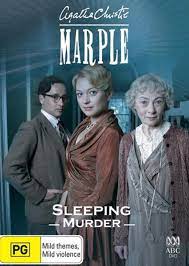
SLEEPING MURDER
UK, 2006, 93 minutes, Colour.
Geraldine McEwan, Sophia Myles, Aidan McArdle, Julian Wadham, Harry Treadaway, Richard Bremmer, Anna Louise Plowman, Harriet Walter, Greg Hicks, Peter Serafinowocz, Una Stubbs, Helen Coker, Paul McGann, Dawn French, Nickolas Grace, Sarah Parish, Martin Kemp, Phil Davis, Russ Abbott, Geraldine Chaplin.
Directed by Edward Hall.
Television film versions of Agatha Christie mysteries are always welcome. And there have been the three actresses, Joan Hickson, Geraldine McEwan, Julia McKenzie. This story, published posthumously, is one of the last Miss Marple episodes and was filmed with both Joan Hickson and Geraldine McEwan.
This version keeps the core of Agatha Christie’s murder and mystery the changes a number of the characters, changes the marital situation of the central character, and adds a whole range of new characters, possible suspects in the murder, although the villain in the novel and the film are the same. The murder actually takes place 17 years or more before most of the action. And there is one more murder in the present.
The film opens in India with some exotic scenes – and a certain amount of misdirection. The action takes place in the early 1950s, a young woman returning to England having grown up in India, attracted to buying a stately home having intimations that she has witnessed a murder. Her fiance’s agent, Aidan McArdle, works with her to settle in and, with the concern about the murder, invites Miss Marple to be her companion and confidante.
The new element in the film is a group of entertainers from the 1930s, The Funnybones, and quite an amount of local reviews, singing and dancing, a troupe including Dawn French, Paul McGann, Martin Kemp. There is also an admirer of the group, Peter Serafinowicz and, interesting to see, his severe mother played by Geraldine Chaplin.
Sophia Myles plays the heiress, convinced about the murder even though there is no evidence. And she relies on her uncle, played by Phil Davis, a psychiatrist. Her father is played by Julian Wadham. Una Stubbs is the housekeeper.
The screenplay was written by Steven Churchett, author of a number of the films for Miss Marple, who never hesitates to change Agatha Christie’s characters and to add unexpected situations and, often, World War II backgrounds.
- Popularity of Agatha Christie stories? Miss Marple stories? Geraldine McEwan as Miss Marple?
- The prologue in India, the Raj, society, Indian dancing, Kelvin Halliday, news of his wife’s death, grief, the development of the plot, the wife’s background, theft, staging the death, the return to England, with their girl, the house, the Funnybones, Helen and her singing, the proposal, the mysterious Indian, her disappearance, the postcode?
- Gwenda, engaged, sailing to England, met by Hugh, awkwardness, driving, her instinctive choice, finding the mansion, buying it, the awkward young agent (and the revelations of his connection with the characters)? Gwenda’s premonition, seeing the murder, her concern, going to visit her uncle, his being a psychiatrist, his reaching out with help? Hugh, helping, inviting Miss Marple to come in and help?
- The range of flashbacks throughout the film, dramatising the episodes, dramatising the characters?
- Miss Marple, observing, listening, making friends, with the retiring police officer, their collaboration? Her suspicions, theories?
- Gwenda, upset, convinced, the theatre, The Duchess of Malfi, the ominous words? Her reliance on Hugh? Her outbursts, the encounters with her uncle? The solicitor, awkward George and his office?
- The introduction to The Funnybones, the flashbacks and the range of performances, David, his devotion, his strict mother observing him and checking? The range of characters, George Erskine and the revelation about his former marriage, relationship with Janet? Afflick, man about town, the later revelation about the drugs? Helen and her place, singing, deciding to leave the group? To marry Kelvin? Evie, young, awkward, glasses, xylophone and tapping, flirting with the men, rejected?
- The aftermath, the stories, Jackie and his wealth in marriages, drug money? George, injury to his eye, George as his son, his recognising that he could not be the father, Janet, Georges suspicions? Evie, great success, records, concerts and performance, Gwenda and Miss Marple going to London, the discussions with her?
- Tracking down the cook, her memories, contribution of information? Tracking down the maid, unhappy with her husband, sending the note, to tell the truth? Her being murdered?
- Miss Marple and the police chief, assembling everyone, the explanations, the links, the truth about James Kennedy, the incestuous love for his sister, the shady background, India, the setup, the return to England, his anger, killing his sister, writing the notes, the false note to the maid and killing her?
- And a romantic ending, Hugh and his proposing to Gwenda on his knees?
Finnick/ Little Monsters
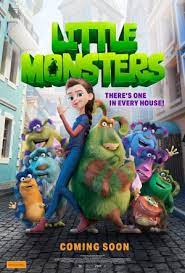
LITTLE MONSTERS/ FINNICK
Russia, 2022, 85 minutes, Colour.
Directed by Denis Chernov.
An animation entertainment for the much younger audiences, with the attraction of Monsters in the title, although that was not the original intention of the filmmakers. Their title referred to Finnick, one of several creatures called Finns, who are invisible to humans but who are there to help them, look after them, protect them.
This is a Russian animation film although some of the sequences and settings and, especially, the voice and dubbing, makes it seem like an American film. (So this is what entertains Russian children in the 2020s.).
It takes a little time for the children’s audience to get to know and like the Finns. This happens because they will identify with Christine, a very enterprising young girl who fancies herself, because of her reading, as a detective, something of a Sherlock Holmes. There is imagination in the whole family because her parents want to be film and television stars, going to auditions, experiencing a very cantankerous director, hoping for their opportunity. In the meantime, they have rented a house which is partially in ruins, quite unkempt.
But, detective Christine, exploring the house, encounters Finnick, learning what the Finns do, going to sit in on an assembly of a huge range of colourful woolly and cuddly creatures.
In the meantime, there is a chubby young boy who wants to be a film star, approaches the director, does a turn, complete catastrophe, destroying a lot of the set. Later, he is revealed as the villain of the piece, declaring that if he can’t be a film star, he will be a star villain. He has befriended a lonely Finn and has decided that his disguise will be made of Finn wool and that he can move around freely, unseen by people.
Christine and Finnick seek out the villain, but he imprisons them, underestimating their capacity for escape. And they warn all the rest of the Finns of the danger that the villain will do to the city, his plan to unleash the huge Ferris wheel so that it will career out of control on to all the buildings and destroy them. (This could be bit frightening for the youngest of audiences – although they may be television robust these days. The film classification is PG and the warning of “Mild Peril”.)
So, plenty of action, plenty of peril, plenty of cuddly characters, the brave Christine, and, despite his frequent accidents, a cheerful Finnnick and a happy collaboration with her parents.
Holiday fare for those little audiences.
Railway Children Return, The
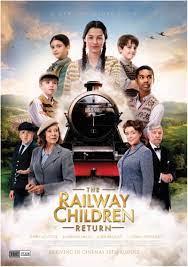
THE RAILWAY CHILDREN RETURN
UK, 2022, 95 minutes, Colour.
All Jenny Agutter, Sheridan Smith, Tom Courtenay, Beau Gadsdon, Hugh Quarshie, John Bradley, Austin Haynes, Jessica Baglow, KJ Aikens, Eden Hamilton, Zac Cudby.
Directed by Morgan Matthews.
Nostalgia. British nostalgia. September 2022 saw (what is that word) unprecedented manifestations of British nostalgia at the death of Queen Elizabeth. No denying British nostalgia in the 21st-century.
Already in 1971, with the popularity of the film, The Railway Children, based on characters by E.E.Nesbitt, the loving return to the British past was in view. Now, 50 years later, the action taking place in 1944, the movement of city children to families in the British countryside, takes us back to that patriotic past, family bonds, the wars interruption to the traditional way of family life.
And, here is Jenny Agutter again, 50 years later, taking up her character from the earlier film. However, the strong Jenny Agutter kind of teenage heroine is played by Beau Gadsdon, leaving her war-widowed mother in Salford, guiding her brother and sister to Oakford, being taken in by the local schoolmistress, Sheridan Smith, and made to feel at home – despite some rather mean-minded local boys scoffing and throwing stones at the refugees from the cities.
So far so nostalgic. However, there is a brief initial indication of something else, MPs raid a local restaurant attacking the African-American GIs. And, suddenly, this becomes a key issue of the film, a young man racially bullied, having joined up to follow his brother’s patriotic footsteps, now wanting to get away from the war within the American troops. He is discovered by the children – and various adventures follow, helping him, hiding him, trying to get him on a train to Liverpool, running foul of the military authorities.
This seem to be a good idea for the plot of the film – but, so many of the comments on the IMDb condemn this, upbraiding the makers for inserting these themes into such a lovely nostalgic story, and introducing that contemporary condemnatory word, that this theme introduction is “woke”.
Work or not, we remember that the Americans were “over there”, that they were welcomed by the British, that many marriages ensued. And, we remember, the black lives mattered then.
So, 21st-century writers have taken up the original characters and invented this story. Why not? (This reviewer watched the film at a Saturday 2 o’clock session, not a big audience, no children, but, in fact, most of the audience were at the age of children of those 1944 railway children.)
- The popularity of the original film? The novel? The characters, television presentations? The use of the characters and situations for another Railway Children film?
- 1944, the city of Salford, the war, bombings, the railway station, the farewelling of the children? At of staying behind, hospital work? The countryside, the town of The Rockford, the railway station, homes, school, the railyards and carriages? The streets, the restaurants? The musical score, songs of the time?
- The three children, separation from her mother, not telling that their father had died in war? The other children on the train? The parents arriving and selecting the children? The three not taken? Bobby, her memories of the past? Annie, her husband at War, Thomas, taking in the three, the accommodation?
- Lily, strong character, age, projective? Angela, Ted, the touch of mischief? The friendship with Thomas? Going to school, the locals in the stonethrowing, Lily asserting herself?
- Life in the town, nostalgia, memories of Britain prewar, the war effort?
- The scene with the MPs, the black soldiers, the trouble? This theme recurring, becoming one of the main themes?
- The talk of the bombings, spies and agents? The discovery of Abe? The reaction, seen as an agent, Lily and her concern, the wound in his leg, getting the material from the house, first-aid, slipping out? The bomber, dropping the bomb, the crater? Abe rescuing her?
- Helping Abe, the reaction of the children? Bringing him into the house?
- The railway station, Richard, eating the sandwiches, his radio, listening to the programs, seeing himself as an agent? Thomas getting the timetable for Liverpool?
- The plan, to get to the station, Lily helping Abe? Distracting Richard? Rounding up all the children, painting the sign?
- The children, holding up the sign, Thomas standing on the track, the train stopping, Lily and Abe in the train? Captured, bound?
- The general on the train, getting off, the situation, Lily and Abe, the racist MP? The discussion with the general, about children in war, Abe and his signing up? The general letting them go?
- Annie, her response, Bobby and the past suffragette work?
- The children revealing to Thomas that their father was dead? His mother’s concern and her husband prisoner of war, Thomas upset at her not telling him?
- Abe, rehabilitated, leaving for America? And the children happy? And the end of the war and post-war Britain?.
Ticket to Paradise
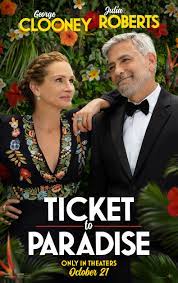
TICKET TO PARADISE
US, 2022, 105 minutes, Colour.
George Clooney, Julia Roberts, Kaitlyn Dever, Maxie Bouttier, Billie Lourd, Lucas Bravo, Genevieve Lemon.
Directed by Ol Parker.
A romantic comedy, romcom, to cheer us up in these, hopefully, post-covert days. And, undermining as it is, pleasantly light weight, it does. And for the rom com – there is a romance, geared for the twentysomethings’ audience, and there is comedy, provided by the older generation. That’s it, George Clooney and Julia Roberts, the older generation.
The paradise of the title is Bali. Some of the photography was done in Indonesia but covid restrictions prevented the whole film being made there. Instead, the filmmakers went to Queensland, always attractive for tropical settings, providing plenty of opportunity in the final credits for Screen Australia, Screen Queensland…
Many remark that a romcom, is ideal as a date movie. Needs some qualification here. While there is the emphasis on the romance in Bali, the stars are the two veterans. Probably good advice is for 20 somethings audiences to check this film out as a date movie gift for their parents or in-laws for a Mother’s Day or Father’s Day outing.
Lily, Kaitlyn Dever, along with her best friend Wren, Billie Lourd, graduate with a law degree. And, proud parents, and David and Georgia (Clooney and Roberts) her cheer (literally) squad. But, we find that while they married 25 years earlier, the marriage lasted five years (with David noting that the other 19 years were full recovery). They have perfected the art of barbed quips, open hostilities – but generally avoiding each other. They say goodbye to Lily and Wren as they travel to Bali.
David and Georgia get their own ticket to Paradise when they learn Lily has fallen in love with a local, pleasant, good-looking, loyal to a large family, seaweed farmer, Gede (Maxime Bouttier) and they are to be married. Providence and the script writers put them together in their plane seats (although Genevieve Lemon, humorous as a tourist, tries to mediate). There are some turbulence troubles in flight (not just between David and Georgia), the David blaming pilot, Paul (Lucas Bravo) who is in love with Georgia. The scene is set.
Bali/Queensland looks wonderful. Lily and Gede seem an ideal couple. But, the plan is for the parents to sow doubts, be like a Trojan horse, infiltrate and disrupt.
Which means then that we are focused on David and Georgia and their manipulations, George Clooney and Julia Roberts obviously enjoying themselves, their 20+ years of films starring enabling them to be very much at ease in whatever situations their characters find themselves (he, dared to jump overboard and swim with dolphins but getting injured, the both of them experience a bit of seaweed farming, doing some celebratory drinking and, to the embarrassment of Lily, some energetically gyrating dancing).
So, humour in the exaggerated situations, and especially in the battle of the sexes and the hostile repartee. Romance with the couple trying, with the elaborate help of his parents and family, to get to the ceremony. And, what about Paul and Georgia?
With the romantic comedies, we don’t expect the unexpected. Rather, it is how much we enjoy the expected. But, the question remains throughout, what is the impact of a marriage 25 years earlier, divorce, separation, and…?
- The title, audience expectations? Bali as paradise? Some of the setting is filmed there, otherwise Queensland?
- Romantic comedy, the emphasis on romance for the younger generation, the emphasis on comedy for the older, estranged generation? The combination?
- George Clooney and Julia Roberts, their screen presence, at ease on the screen, any kind of character, any kind of shenanigans, always interesting and attractive?
- Lily, years of study, law, strong friendship with Wren, graduating, inviting her parents, aware of their antagonism, brought up by her mother, visits with her father? Asking them to not be aggressive? The graduation, their shouting and yelling? Lily and Wren going to Indonesia?
- The girls in Bali, enjoying it, the encounter with Gede, the attraction, his farming seaweed, the background of his family? Attracted, falling in love, 37 days, announcing the engagement?
- David and Georgia, the news about the engagement, their coming together, lockstep, against the wedding, deciding to intervene? The plane flight, champagne, antagonism, the passenger in the middle (and her later turning up and saving them from the island)? Paul, arranging to be co-pilot, the turbulence, the angry passenger at the airport?
- The repartee and quips, barbs, between David and Georgia? The comedy? Meeting Lily, pretending to approve, yet the Trojan Horse strategy, to insinuate and break up the marriage? Gede and his realising what was happening? The meeting of his parents, translations, not always accurate? The accommodation on the island?
- Bali, the natural beauty, the people, friendly, the extended family, celebrations, religious overtones?
- Gede and the seaweed farming, seeing him at work, David and Georgia later doing the work, competitive?
- Georgia, the little children playing, stealing the wedding rings, later found in her purse? The couple getting other rings after the delay of the ceremony?
- David, the various tricks, the frank talks with Gede, out on the boat, the dolphins, his going in, injured? The game with the balls in the cups and the drinking? David and Georgia winning, the dancing, Lily’s embarrassment? The later mixup with the rooms? Paul and his puzzle?
- The visit to the island with the curse, David’s idea, tying the boat to the log, its floating out, their being stranded? Georgia and David together, reminiscing about the past, 25 years earlier, the land, building the house, falling out of love, Georgia becoming a mother, her career and a gallery, the discovery of the George still owned the land?
- The rescue, Paul and his arrival, with Georgia, his proposal, her hesitation?
- The buildup to the wedding ceremony, Lily wanting her parents to consent, their agreement? The celebration?
- Paul, proposing again, Georgia and her excuses? Going back to David?
- On the boat, not delaying the good things till later, and jumping off the boat – into a different future?
Scuola Cattolica, La/ The Catholic School
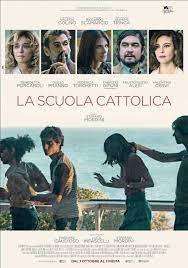
LA SCUOLA CATTOLICA/ THE CATHOLIC SCHOOL
Italy, 2021, 106 minutes, Colour.
Benedetta Porcaroli, Emmanuele Maria Di Stefano, Leonardo Ragazzini, Alessandro Cantalini, Luca Vergoni, Francesco Cavallo, Gianluca Guidi, Valentina Cervi, Valerio Golino, Riccardo Scamarcio, Jasmine Trinka.
Directed by Stefano Mordini.
This is based on facts drama requires some understanding of Italian society in the 1970s, the diminishing role of the Catholic Church, education and a Catholic school, double standards of Italian society and the consequences.
The following commentary is very helpful, well worth reading and thinking about. It comes from the website, Digital Mafia Talkies, Published on September 15, 2022 By Sushrut Gopesh
Directed by Stefano Mordini, “The Catholic School” (or “La Scuola Cattolica” in Italian) is based on the novel written by Edoardo Albinati, of the same name. The screenplay, written by Massimo Gaudioso, Luca Infascelli, and Stefano Mordini, takes us six months back because, in order to understand the crime and why it occurred in the first place, it is necessary to understand the sensibilities and the beliefs of the world that the narrative is based in. One look at the foundation of a hypocritical society, and you realize that it is damaged beyond repair. And who bore the consequences? Well, obviously, the females, and the downtrodden. So, let’s see what happened in Edoardo Albinati’s class of ’75 that changed the outlook of the entire nation.
Plot Summary: What Is The Film About?
As soon as we are taken inside the gates of St. Luigi High School, we realize that a huge conflict exists between the status quo that the Catholic school wants to maintain and the actual ground reality. It was an all-boys Catholic school where violence was the order of the day, as said by the narrator, Edoardo Albinati, who was also a student there. Romoli had been bullied by some of the seniors, but nobody was ready to speak about anything. They were called into the headmaster’s chambers one by one, but nobody uttered a single word. But when Marco D’Avenia went and saw the state of the poor boy, he had some sympathy. He told the headmaster that Jervi, Gianni Guido, and a few others were involved in the activity. Gianni’s father comes to meet the headmaster, and exactly at that moment, you realize where the real problem lies. Raffaele Guido was an influential man, and the school received a lot of donations from him. He abruptly cut the headmaster in between, as if telling him that he didn’t want to waste his precious time listening to the moral lectures of the pseudo priest. And the wishes of the powerful and influential prevailed. The school mocked the very foundation of justice and gave Romoli a pair of new spectacles. Nothing happened to those who bullied him. Gianni was beaten by his father, but that had little or no impact on the boy, who went to a party later in the evening. The law of the land was very simple: either you bully and dominate people, or you are subdued and live a life in fear.
Gioacchino Rummo, another student in the catholic school, belonged to a religious family. He was probably the only one who was a believer among all those who claimed to possess high morals and values. Gioacchino doesn’t understand how the perpetrators were left unpunished. His father tells him that evil should be understood and then forgiven. He says that a sinful act should never be retaliated with more vengeance because, apparently it was not the lord’s way. As bizarre as it sounds, the father expected his kids to believe in the theory. Later that evening, Angelo, Gian Petro, Gianni, and others who bullied the junior meet and discuss how nobody said a word to them, and they could get away with it very easily. It comes out in their conversation that they all belonged to rich and influential families who donated huge sums of money to the school. A man comes and tells Angelo that Andrea has been released from jail. At this moment, we do not know who he was, and we assume that he was a delinquent serving a sentence for a crime. Angelo meets his brother, Salvatore, in the night and gives him a lesson in brotherhood. He says that he can never be a snitch. Angelo had a menacing presence, and his brother was scared of him. Angelo was the kind of man who was capable of going to any extent in order to get what he desired. Angelo realized that his brother was a homosexual. He was not ready to accept that fact. How can the brother of a person who is soaked in toxic masculinity, who wants to be in charge, who wants to have his way even if it requires application of force, who takes pleasure in oppressing others, could be so feeble and sissy? Obviously, homosexuality was seen as a disease, and homosexuals were seen as objects to be scorned at. D’Avenia showed traits of being masochistic. He was bludgeoned by Jervi and others, and he seemed to derive pleasure from the pain inflicted upon him.
Edoardo, on the other hand, found himself in a state of conflict. He confessed in front of the father that he often told lies just to blend in. He validates each and every behavior under peer pressure, but in the end, he feels void from the inside. He believes that if he shows his real side, it won’t be accepted by others. He was stuck in a dilemma where he didn’t understand how to not be a part of the debauchery and maintain his separate set of ideologies. Edoardo’s best friend was a boy named Alessandro Arbus, who was nothing less than a genius. He had a brilliant academic career and didn’t accept anything blindly, not even faith. He was planning to leave the school as he felt that he was not learning anything there. Arbus’ family was very unique too. His sister Leda, with whom Edoardo had been infatuated for quite some time, was a part of a far-right extremists’ group. Arbus’ father was always more interested in his students than in his own children. Later it was revealed that he was a homosexual, though the family knew about it from before.
Stefano Jervi was another student who had made a very distinctive image for himself. He looked more mature, more confident and more calm than the others. One glance at him, and you would know that he was under control. Jervi shared an intimate relationship with one of his colleagues’ mothers. Picchiatello Martirolo (Pik)was the son of a famous actress named Coralla Martirolo. Jervi often visited her house when Picchiatello wasn’t there. Pik was probably autistic. He found out about the affair of her mother and felt distraught, though he knew that there was nothing he could change about it.
If one keenly listens to the conversations that the parents had with their children and what the teachers taught in the classes, one will get to know that something was clearly not right with their beliefs. While asking his students to observe a painting in which Christ was being beaten by people, a teacher says that the persecutors are victims too, because those who hurt others, hurt themselves too. The students were a bit taken aback because they themselves had never heard such a twisted interpretation of the Bible. Raffaele Guido, the father of Gianni, believed that persuasion, threat, and punishment were the three most important pillars of teaching. He often told his son that as a man, he could not be so emotional. He took it as a vice and told him to be cold-blooded. Because of the kind of upbringing the boys had, it was just a matter of time before their recklessness turned into lawlessness and resulted in devastating consequences.
‘The Catholic School’ Ending Explained: What Happened To Donatella And Rosaria?
Gian Pietro had given a lift to two unknown girls named Donatella Colasanti and Nadia. Gian told them that his name was Carlo. He did that because he saw them as probable targets upon whom the boys would prey upon later. His intentions are clearly established when he meets the rest of the gang. He told Angelo that the girls stayed in Montagnola. By their reaction, you come to know that it was not a very posh locality, and maybe the elites didn’t like staying there either. But that didn’t stop Angelo from asking Gian to arrange for a meetup. Gian did the needful but didn’t want to be associated with whatever they were planning to do. Instead of Nadia, another girl named Rosaria came this time. The girls were attracted by the extravagance and opulence of these boys. They were attracted to the fancy cars they drove and the huge mansions they lived in. There is a stereotype in our society that a privileged person never indulges in any activity that is prohibited by the law. Often it is seen that we create a good perception about anyone who is carrying himself properly, looks decent and comes from a well to do family, even if we do not know anything about him or his past.
Donatella, too, judged the book by its cover and didn’t know what she was signing into. Angelo and Gianni took Rosaria and Donatella to a mansion, which they said belonged to Carlo. The girls couldn’t believe their eyes. They had never seen such a beautiful bungalow in their whole lives. This scene is also indicative of the class conflict that existed in Italy in the 1970s. There were a lot of economic antagonists who enacted to bridge the gap, but they still had a long way to go. Rosaria said that she would like to go back home as it was getting late, but Angelo and Gianni had other plans. They pointed a gun at the girls and confined them in the bathroom. To the horror of the girls, they realized what the real plan of the boys was. They told the girls that they belonged to the Marsigliesi gang. They sexually abused the girls, and soon Andrea Ghira, who was recently released from jail, joined them. The girls were abused, beaten, and molested to the point that one of them couldn’t survive the pain and violence inflicted on her. The boys killed Rosaria by drowning her in the bathtub, and Donatella could hear the muffled voice of her friend, crying for help and requesting the perpetrators to have some mercy on her. She never imagined in her lifetime that she would be subjected to something like this. She begged the boys, but they kept on drugging and molesting her. Donatella pretended to be dead, and the boys prepared to dispose of both the bodies. Angelo and Gianni left both the bodies in the trunk of their car, thinking that they would dispose of them later in the night. Call it fate, luck, or sheer fortune, somebody heard Donatella’s call for help and informed the police. Donatella survived, and Andrea, Angelo, and Gianni were caught by the police.
Is ‘The Catholic School’ Based On True Events?
Unfortunately, yes, “The Catholic School” is based on true events that happened in the year 1975. The incident came to be known as the Circeo Massacre, and as put by Edoardo Albinati himself, it changed everything henceforth. According to the horrendous laws that prevailed in the country during that time, rape was not considered a crime against a person. It was considered to be a crime against public morality. So basically, it was seen as an act that hurt the sentiments of society but not as an act that destroyed a person’s life and made her suffer from the trauma. The meaning of this is that the legal justice system didn’t have strong deterrent measures against those who committed rape as it has today. A girl had died, and society just considered it to be an immoral act, and nothing more. The young boys were more scared to speak against religion than to outrage the modesty of a woman. It took the Italian government approximately 20 more years to recognize that rape was a crime against a person too. Andrea, Angelo, and Gianni were sentenced to life. Andrea died in 1994 when he was escaping arrest. Till that time, he lived like a fugitive on the run. Angelo Izzo was released in the year 2005 for apparently good conduct, but he mocked the legal machinery of the country by committing two more murders as soon as he was released.
Gianni Guido was released in 2009 and has been a free citizen of the country since then. Often, the puppet show in a democracy is orchestrated by the rich and powerful. Donatella Colasanti died in 2005 at the age of 47. What was the fault of the innocent girls? Was it their fault that they were too naive to take a leap of faith and believe in the bona fide intentions of the boys? Was it their fault to be born in a country that didn’t understand the consequences of going through a traumatizing experience and what it did to a person? Or maybe it was their fault to be born as girls in a male-dominated society. Edoardo Albinati says in his novel, “The Catholic School,” that being born a boy is like an incurable disease. The author recounts that after many years, since the Circeo Massacre, he met Gioacchino Rummo, who had become a psychiatrist. He found that there was something wrong with each and every fragment of society. Everybody, especially the boys, was suffering from some kind of mental disorder. You could see it in the eyes of Angelo, that incessant need to be in control and how he believed that he was entitled to do that. Not even once did the boys flinch when they were torturing the two girls. It said a lot about their mental state. The families were dysfunctional, and the individuals that were brought up in these families also grew up to be obnoxious in some or the other way. A lot of things that you know were blatantly not right were accepted in a very casual manner. The catholic school, the ardent devotees, and the so-called pious people were responsible for this kind of outcome. According to the teachings of the church, one was forced to not feel a certain way, but nonetheless, everybody indulged in everything that was prohibited by religion. The outcome was: Gays and homosexuals were scorned, women were objectified, males were considered superior to everybody else, and the children were molded in a fashion that unanimously validated the oppressive and unjust behavior. The Circeo Massacre was an example of the hypocrisy that exists in our society, the crumbling man-made systems and how they are molded according to the convenience of the few who exercise control.
When We Last Spoke
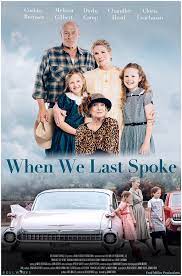
WHEN WE LAST SPOKE
US, 2019, 108 minutes, Colour.
Corbin Bernsen, Melissa Gilbert, Cloris Leachman, Chandler Head, Derby Camp, Lacy Camp, Alicia Fusting, Johanna Jowett, Julia Denton, Danny Boaz.
Directed by Joanne Hock.
This is a faith film but a popular family story told for a wide audience, especially American.
There are a few church sequences but going to church, Sunday worship, are not to the fore. There is an amount of God language, grace before meals, going to heaven, speaking of Providence, and a father berating God angrily at the death of his son in Vietnam.
Most of the film is set in 1967 although it opens in 1997 and goes back. In 1997, two sisters have been antagonistic for a long time. One has moved away from the family home in the town called Fireside. The other has remained, with her grandfather as he aged, and speaking on the local radio station, affable chatting with the townspeople who listen in to her.
In 1967, their father has been sent to Vietnam, their mother abandoning them with their father’s parents. These grandparents are played by Corbin Bernsen and Melissa Gilbert (and, for many, memories of The Little House on the Prairie). At one stage, their father’s grandmother, suffering from eccentricity and dementia, lands at the house and has to be cared for. She is played by Cloris Leachman.
The film shows the relationship between the two sisters, on the one hand, protective, on the other, often antagonistic. They are mocked at school because of their absent father and mother. They get into fights. But, there is a nice boy who defends them (and turns up in the latter part of the film in 1997). The girls misinterpret some behaviour on the part of the local manager of the shop, for independent purposes, a pre-Dolly Parton looking and sounding character. The girls think she is carrying on with their grandfather and join with a friend at a sleepover in throwing toilet paper all around the front garden and trees. They have to apologise.
Eventually, the grandmother dies – the church sequence, brief.
The latter part of the film has the daughter who is left town driving cross-country to return, her sister thinking she had not heard any of her requests, the two meeting, clashing, their grandfather dying, but finding some kind of reconciliation.
- The story of two sisters? The title and the tone? Memories, forgiveness, reconciliation?
- A faith film, God language, providence of God, questioning of God and suffering, some church sequences? Faith people, not evangelical, taking church for granted?
- The opening, the father with the two daughters, his going off to Vietnam? The mother watching, her dress and manner, the phone call, leaving, preparing the girls, the car, taking them to their grandparents, their pleading with her not to go?
- The cosy name of the town, Fireside? The sequences in 1967, the two girls and their life with their grandparents, their great-grandmother?
- The scenes in 1997, Juliet and her comments on the radio, folksy and talking to the townspeople? The contrast with Evangeline, dress and manner, absence for such a long time?
- The portrait of the grandparents, the touch of the Norman Rockwell, the farm, chickens, cows, but not many farm sequences? Home life, Walt, his humour, love for Ruby, cheerful, spoiling the girls, ice creams and gifts, the parcels from their mother? His friendship with Selma, the girls later misinterpreting a scene? The admiration for Evangeline, clothes, manner, and her remembering the details of every meal!
- The girls at school, the bullying boy, William and his interventions, Juliet protecting Evangeline?
- The girls and their reactions, squabbling, Evangeline in the tire and Juliet turning it, her being sick? The difference in ages, Evangeline and her ingenuity, staring at Selma? Juliet protective? Their friend from school, the sleepover, the gossip, seeing sombre and assuming it was Walt, the toilet paper in the trees? Ruby’s reaction, sombre explaining what it happened, cleaning up?
- The Vietnam sequences, their father, war service, helicopters, the buildup to fighting, injury, his writing the letters, his death? The military coming with the announcement of his death? The girls and their talk of his being in heaven and not coming back?
- The arrival of Grandma Claiborne, age, dementia, manner, in the house, taking over, wanting to cook, her room, memories of her husband, going to the beach to build sand castles, the two girls in charge, her telling her history of being a dancer, the flashback to her dancing, meeting George? The Pearl Fishers and everybody dancing?
- Walt, his absence after his sons death, revealing that he went to New York to seek out the widow, her grief, her disappearance?
- Grandma Claiborne, her deterioration, her death? Funeral, the church, prayer?
- 1997, Juliet and phoning Evangeline, the answer, Evangeline and her travels cross country, arriving, hearing Juliet on the radio, the radio station, the confrontation?
- Walt, dying, his joy in seeing Evangeline, their going through things in the attic? The sadness of his death?
- William, from school days, approaching Juliet, the pie raffle, the wedding?
- A faith film with the faith light touch.

